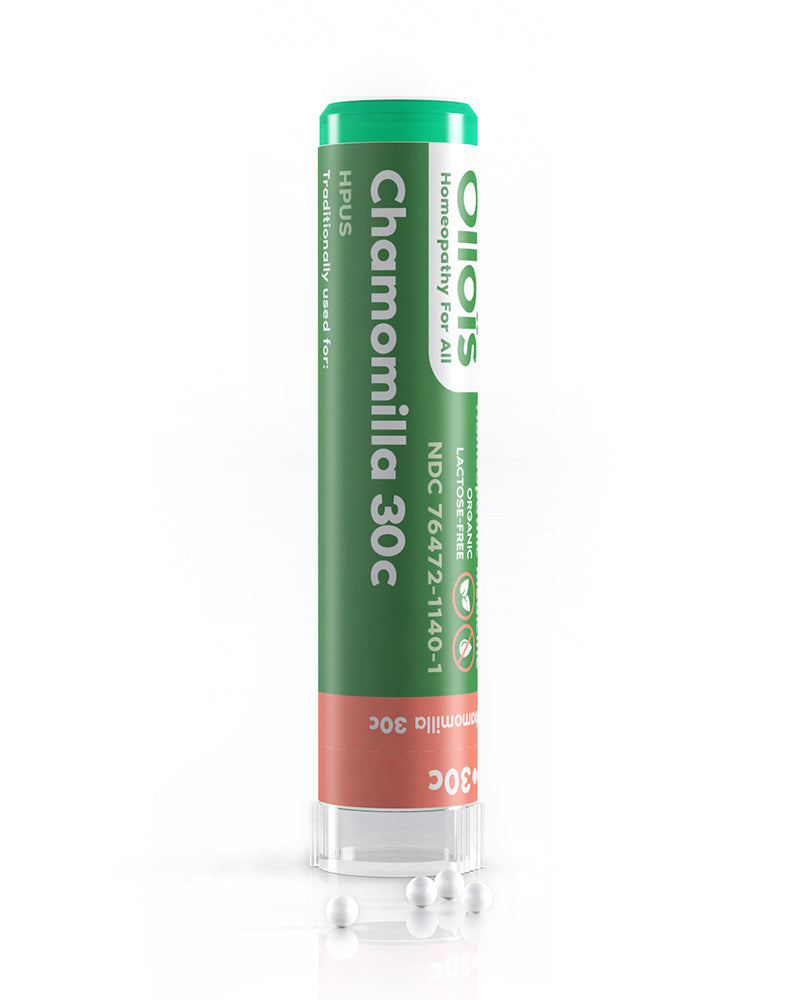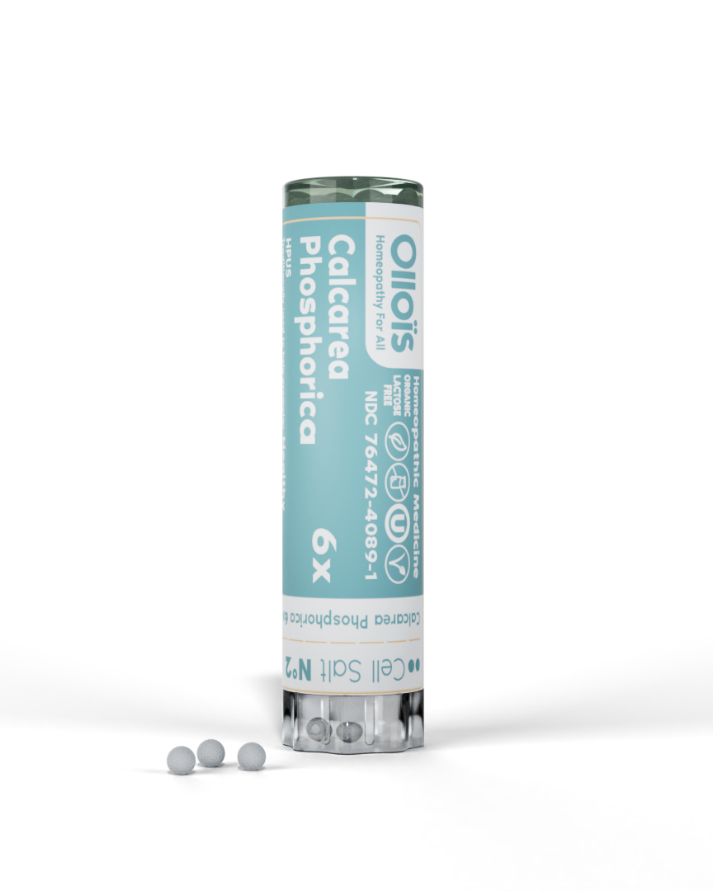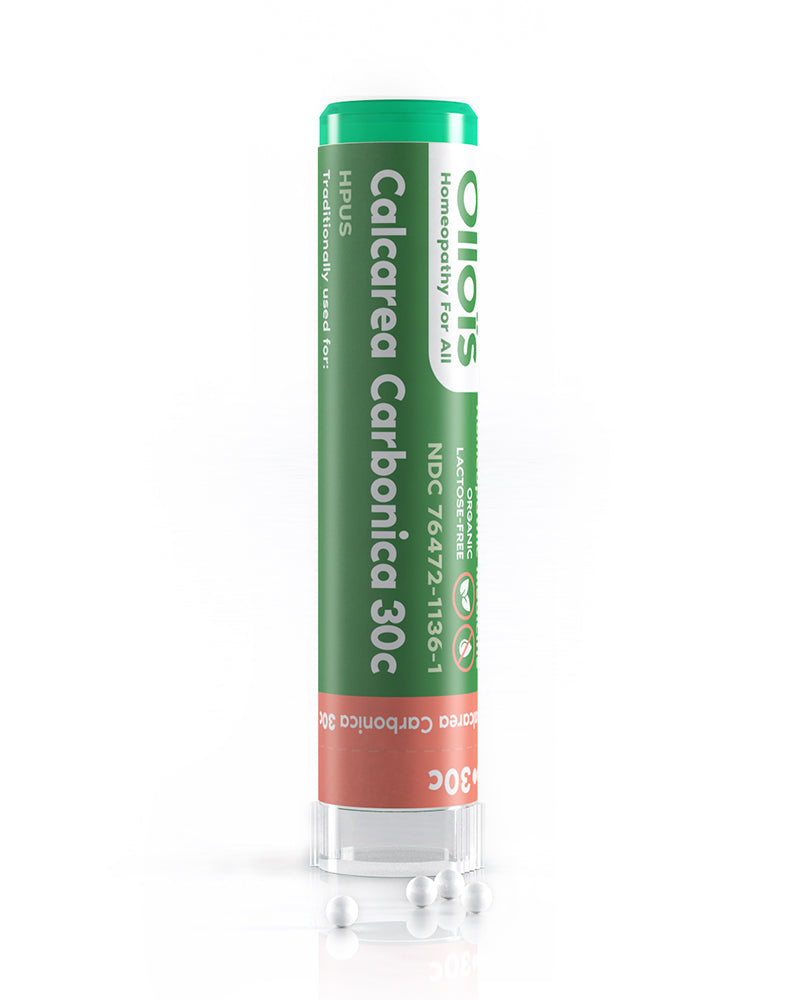Collection: Teething
Chamomilla
Cell Salt N°2 Calcarea Phosphorica
Calcarea Carbonica
Most babies begin teething around the 6th month mark. And usually the bottom-front teeth are followed by the top-front teeth – or, upper and lower incisors. Parents usually notice a few key indicators that teething has begun. Drooling and chewing on objects are typically the first symptoms. Having teething rings handy can be an asset. From there, they can become very irritable due to the soreness of their gums. And, as discomfort increases, chilling the teething rings – or even a spoon – can provide some quick alleviation. The middle of the night is no exception; as parents the world over are suddenly awakened by the intense crying of their teething baby.
You may notice some swelling of your baby’s gums as teeth come closer to emerging. They may even have a blistered look to them and be tender to the touch. Gum pain may even make your baby apprehensive at meal time. Fidgeting and general restlessness may also accompany this – adding to your challenges. Emerging molars can be more painful, since they are larger and have less ability to slice through the gums.
When you and your baby need some relief, there is homeopathy for teething. A 100%-natural remedy like Chamomilla-30c or Calcarea-Carbonica-30c – both products are available from Olloïs. These remedies have shown to provide a relaxing effect that will help ease the pain and help you both sleep. The Chamomilla-30c has also shown some ability to reduce inflammation; which could be a source of your baby’s discomfort.
Looking for more information on homeopathic remedies that can help you and your family get natural relief from discomfort and pain? Browse our product pages to find the right remedy for you.
FAQ
Which Homeopathic Remedies are Good for Teething?
Ollois offers natural remedies like Chamomilla and Calcarea for teething. These remedies are known to provide a relaxing effect that can ease the pain associated with teething and potentially reduce inflammation, offering comfort to teething babies.
What Other Homeopathic Remedies Does Olloïs Offer Besides Treatments for Teething?
Olloïs offers a wide range of homeopathic remedies for various conditions, including pain relief, infections, digestive issues, and more. Discover our full range of homeopathic solutions in our Homeopathic Remedies Collections.
Why Use Homeopathic Medicine for Teething?
Homeopathic medicine for teething, such as those offered by Ollois, is considered a 100% natural approach. These remedies are designed to work in harmony with the body's natural healing processes and are selected for their ability to gently and effectively alleviate symptoms associated with teething.
Is Homeopathy regulated?
The U.S. Congress passed a law in 1938 declaring that homeopathic remedies are to be regulated by the U.S. Food and Drug Administration (FDA) in the same manner as nonprescription, over the counter (OTC) drugs.
What is the difference between the dilutions?
30C dilutions are traditionally used in Homeopathy to address general and chronic symptoms.
200CK dilutions are usually recommended by healthcare practitioners when there is an emotional component associated with physical symptoms.

 Respiratory
Respiratory
 Stress & Sleep
Stress & Sleep


